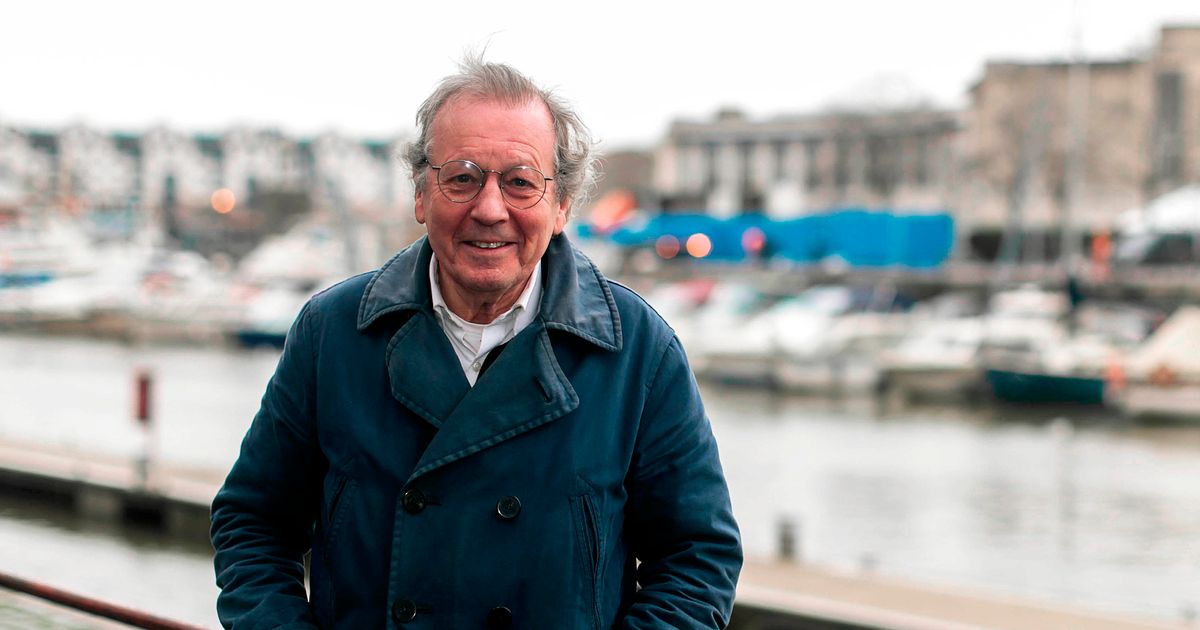“Let’s not despair – good can come out of this ‘perfect storm’”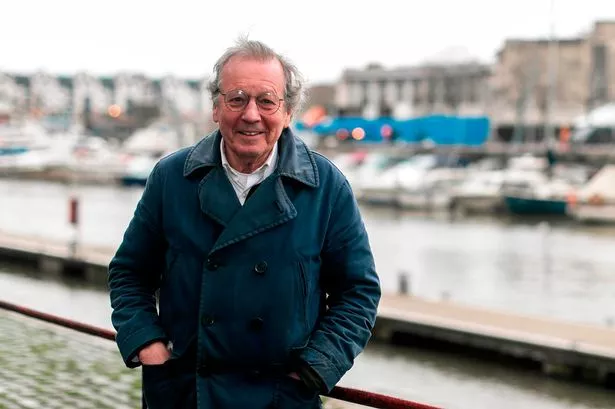 Former Mayor of Bristol George Ferguson (Image: BristolLive)
Former Mayor of Bristol George Ferguson (Image: BristolLive)
The sudden stop in the drive to build high-rise flats on Bristol’s industrial sites has been welcomed by the city’s former mayor, who said he was ‘heartened’ to discover that a ‘perfect storm’ was putting the brakes on the construction of tall residential buildings in the city. George Ferguson said he had been ‘battling my successor’s stampede into high-rise housing’, saying it was doing ‘damage’ to established Bristol communities.
The architect, who was Bristol’s first directly-elected mayor back in 2012, said the city should take the opportunity to switch to a different philosophy of building thousands of homes, and that ‘good can come out of this perfect storm’.
Last week, Bristol Live reported that major property developers who were leading the drive to build thousands of new homes in high rise flats on industrial sites from St Pauls and Fishponds to St Judes, Temple Meads and Bedminster, were discovering a ‘perfect storm’ of economics, increased regulation and bureaucracy, and increased costs.
Developers across the city had paused starting work on major new housing projects, others had said their original plans were no longer economically viable, and one industry expert said he didn’t expect any large-scale projects to be completed for four years.
Perhaps the biggest indication of the switch being flipped on Bristol’s high-rise housing boom came when an industrial estate between Bedminster and Temple Meads was sold to an investor who wanted to keep it as an industrial estate, despite the fact the city council had drawn up a ‘development brief’ for as many as 1,500 new homes to be built there.
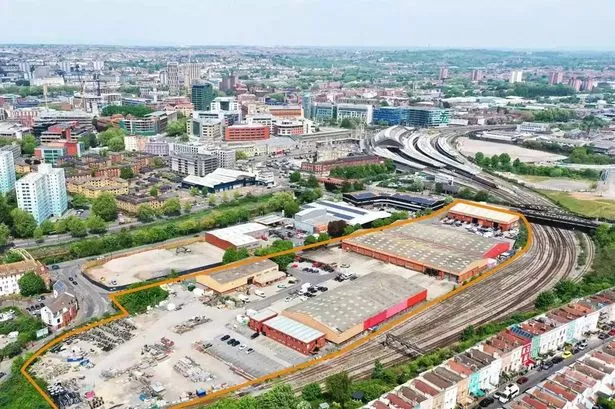 The land at Mead Street outlined in orange, which is being sold by estate agents Cushman & Wakefield. The Totterdown houses are in the bottom right overlooking the site, with Temple Meads station in the centre right and St Mary Redcliffe School on the opposite bank of the New Cut River Avon in the centre left of the image(Image: Cushman & Wakefield)
The land at Mead Street outlined in orange, which is being sold by estate agents Cushman & Wakefield. The Totterdown houses are in the bottom right overlooking the site, with Temple Meads station in the centre right and St Mary Redcliffe School on the opposite bank of the New Cut River Avon in the centre left of the image(Image: Cushman & Wakefield)
That industrial property investor was prepared to pay more for the land off Mead Street than any property developer – with the increased costs in building large-scale high rise developments making it not economically viable for developers to buy it.
Mr Ferguson – who served one term as directly elected mayor of Bristol, before losing to Labour ’s Marvin Rees in 2016 – said he was delighted to discover that the tide appears to be turning in the housing market in this way, and that we need to solve the problem of needing to build thousands of new homes in a different way.
READ MORE: Bristol’s high-rise housing boom stopped by ‘perfect storm’READ MORE: Building up or building out? Do we solve Bristol’s housing crisis with skyscrapers or new suburbs?
“I was heartened to read this,” he said. “I have been batting on about my successor’s stampede into high rise housing and the damage it is doing to established Bristol communities.
“It is the product of a simplistic knee-jerk reaction to solving what is a desperate housing crisis, while we should have learnt from the mistakes of the past and created sustainable mixed use communities where families can live, thrive, work and play.
“It seems that every city landowner has been encouraged to apply for monocultures of high rise residential development without an understanding of what makes for good high density living or a sound city economy. High density does not have to mean high rise,” he added.
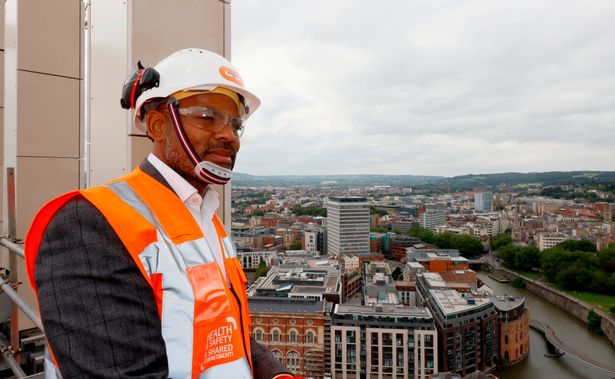 Bristol Mayor Marvin Rees on the roof of the new Castle Park View 26-storey tower block (Image: John Myers)
Bristol Mayor Marvin Rees on the roof of the new Castle Park View 26-storey tower block (Image: John Myers)
Many of the issues now facing property developers stem from increased regulation on high-rise buildings. New laws mean any residential building over 18m tall has to have two staircases, as a consequence of the Grenfell fire tragedy, and a new Government body overseeing building regulations was set up under-resourced and has since become over-run, with lengthy and expensive delays in giving the go-ahead to projects after they have obtained planning permission.
George Ferguson said he has ‘always been astonished’ the rules were so lax in the first place. “High rise buildings may have their place in city planning – but since the demise of real city planning we have allowed the financiers and developers to lead with little or no consideration for our historic areas or long term outcomes,” he said.
“Generally the real cost of these buildings are left for others to pick up, as has too often been the case with the post-Grenfell cladding scandal. As an architect trained in the 60s and subsequently President of the RIBA I have always been astonished that in the UK we have been able to build tall buildings with a single means of escape – what has proved to be a murderous policy,” he added.
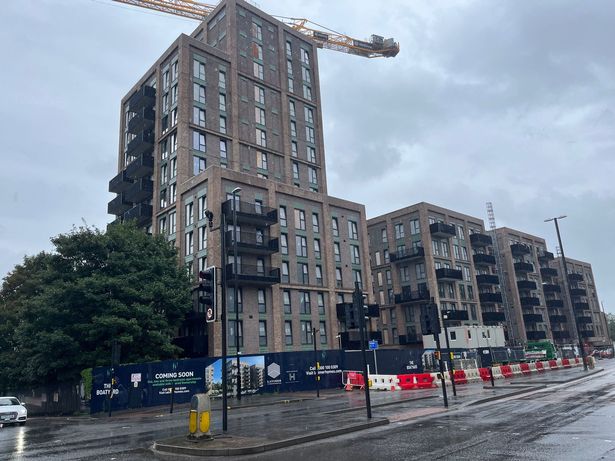 The unfinished Boatyard development on Bath Road in Totterdown(Image: Bristol Live)
The unfinished Boatyard development on Bath Road in Totterdown(Image: Bristol Live)
But if the new regulations mean it is not economically viable to build high-rise blocks of flats anymore in Bristol, that’s a positive thing, Mr Ferguson said.
“Let’s look at the positives of the situation Bristol finds itself in. We need places for real work, so the story could be that the city centre industry is saved,” he said. “It has become increasingly difficult to find central sites to make things with a presumption of housing pricing-out all industry,” he added.
READ MORE: Victory for campaigners as council terminates development partner from major regeneration siteREAD MORE: New Bristol ‘build-to-rent’ apartments almost £2,000 a month
The answer is to build low-rise but just as dense, he said. “Of course we need amenable places for people to live, which can be provided with up to five or six storey development defining communal streets and spaces – thereby avoiding the on-cost of building above 18 metres with all the additional regulations, and yet producing equivalent densities,” Mr Ferguson said.
“It is interesting that the Hill Group are developing a site adjacent to the Tobacco Factory on Raleigh Road which was promoted by the agents as blocks of flats but are building predominately streets of houses. If this is the outcome of the ‘perfect storm’ maybe we should be delighted?
The former mayor also welcomed the ‘wonderful opportunity’ presented by the new town at Brabazon, and called on South Gloucestershire Council to ‘take a real grip’ on the plans. “At the other end of the spectrum we have surrounded much of Bristol in unsustainable suburban sprawl – especially to the north of the city,” he said.
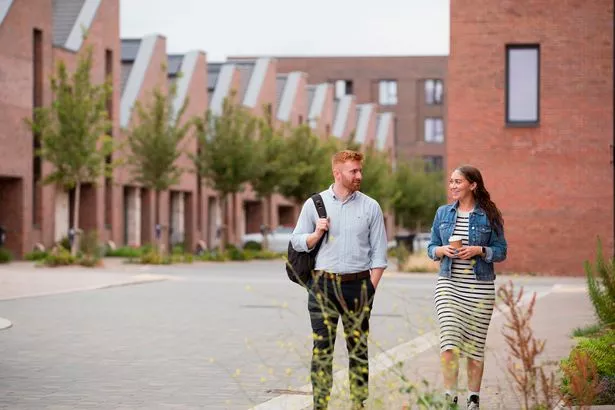 (Image: YTL)
(Image: YTL)
“Here is a wonderful opportunity to take a real grip on planning and build on the emerging ‘Brabazon’ development to create a substantial ‘new town’ of at least another 100,000 people with all the facilities one would expect of a proper town, places of work (Aerospace & advanced engineering – and maybe a rebuilt Aztec West), centres of research and learning (UWE), major retail (Cribbs) and places for recreation (Zoo Project, The Wave, Aerospace Bristol) – and of course a long awaited arena – all linked to national rail (Parkway Station) and a proposed mass transport system and cycle ways; a great ambition for our newly elected Metro Mayor Helen Godwin,” he said.
“So let’s not despair – good can come out of this ‘perfect storm’ if we find the resources and think in terms of regional planning rather than the arbitrary nightmare planning that Bristol has been subject to over the past eight years or so.
“There are good people in Bristol and the so-called ‘West of England’ capable of turning this nightmare around – let’s give them the means to do so,” he added.
